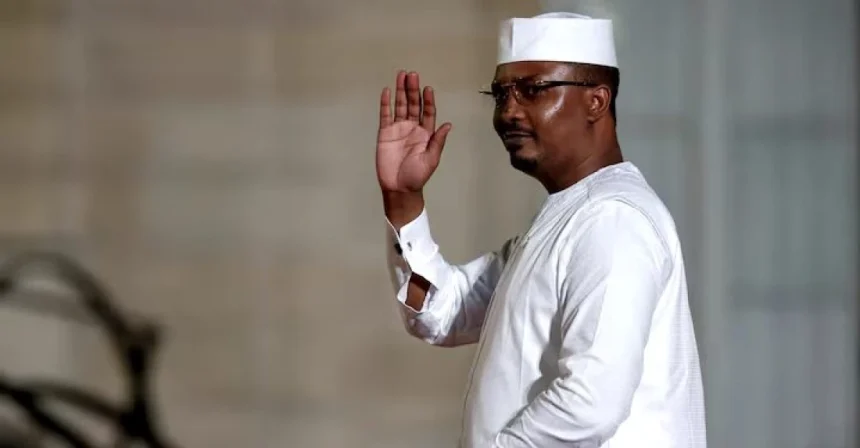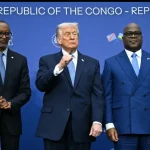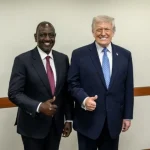The recent vote by Chad’s parliament to adopt a new constitution, instituting a powerful presidential system with unlimited seven-year terms, is far more than a domestic political event. It is a masterfully executed strategic maneuver by Transitional President Mahamat Idriss Déby, designed to consolidate his rule indefinitely while navigating a complex web of regional insecurity and shifting global alliances. This move effectively buries the democratic transition promised after his father’s death in 2021, signaling a return to an authoritarian model with profound implications for the Sahel.
Section 1: The Historical Blueprint – A Déby Dynasty Consolidates
The move to eliminate term limits is not an innovation but a reversion to a well-established playbook in the region.
-
A Family Legacy: Mahamat Déby is not creating a new system but perfecting the one he inherited. His father, Idriss Déby Itno, came to power via a rebellion in 1990 and progressively weakened institutions to maintain his 30-year rule, amending the constitution in 2005 to remove a two-term limit. Mahamat’s actions are the second chapter in establishing a de facto monarchical system.
-
The Illusion of Transition: The 18-month “transition” period following his father’s death was never a genuine path to democracy but a calculated period of consolidation. By controlling the military, the key ministries, and the narrative of “stability,” Déby used this time to sideline opposition, co-opt rivals, and stage-manage a National Dialogue that laid the groundwork for this constitutional change.
-
Regional Context: This follows a regional pattern of “constitutional coups.” Presidents in Guinea, Côte d’Ivoire, and Central African Republic have used similar tactics to extend their rule. Déby’s success provides a new, potent template for other leaders in the Sahel and Central Africa, demonstrating that international criticism can be weathered.
Section 2: The Geopolitical Calculus – Chad’s Pivotal Role in a Volatile Region
Chad is not just any African nation; it is a linchpin for regional security, a status Déby has leveraged skillfully.
-
The “Gendarme of the Sahel”: Chad possesses one of the most capable militaries in the region, a legacy of Idriss Déby’s constant warfare. This army is a primary asset. The argument for “stability,” relentlessly pushed by the regime, resonates with Western powers terrified of the Sahel’s jihadist insurgencies spilling further. Déby’s message is clear: “I am the bulwark against chaos. My indefinite rule is the price of your security.”
-
Navigating the New “Scramble for Africa”: Déby is playing a dangerous but shrewd game between global powers.
-
France: Historically, France’s closest ally in the Sahel, providing critical military and financial support. However, French influence is waning dramatically across the region (e.g., Mali, Burkina Faso, Niger). Déby is using this constitution to signal he is no one’s puppet, potentially distancing himself from Paris to appease domestic anti-French sentiment while still expecting their support out of necessity.
-
Russia: The shadow of the Wagner Group (now rebranded) looms large. While not officially replacing France, Déby can use the threat of turning to Moscow as leverage. By demonstrating strong, centralized control, he positions himself as a valuable partner for Russia, which prefers dealing with strongmen rather than messy democracies.
-
The United States: The U.S. views Chad as a critical intelligence and counter-terrorism hub. Its primary concern is security, not democracy. The administration is likely to issue statements of concern but will continue its security cooperation, prioritizing the fight against ISIS and Boko Haram over constitutional principles.
-
Section 3: The Domestic Fallout – Silencing Dissent and the Illusion of Opposition
The new constitution is a tool for complete domestic control.
-
Neutralizing the Opposition: The main political and armed opposition groups, like the Socialist Party Without Borders (PSF) and the Transformers party, are now facing a political landscape where electoral victory is mathematically impossible. The regime’s strategy is to tire them out, divide them, and offer piecemeal concessions to some, ensuring a fractured and demoralized opposition.
-
Control of Resources: With an indefinite horizon, the Déby regime can now fully entrench its control over Chad’s oil wealth and other resources. This creates a self-funding cycle: resource revenue finances the security apparatus, which ensures the regime’s survival, which in turn guarantees continued control over resources. This leaves little for development, perpetuating the poverty that helps maintain the status quo.
-
The Future of the Zaghawa Elite: The constitution secures the long-term dominance of the Zaghawa ethnic group, from which the Déby clan hails, within the state’s power structures. This ethnicization of power risks storing up immense social tension and potential conflict in the long term with the larger, marginalized populations in the south and other regions.
Conclusion: An Uncertain Horizon
The adoption of this constitution is a pivotal moment. In the short term, it guarantees “stability” of the kind that benefits the ruling elite and its international partners. But it is a brittle stability, built on repression and the suppression of popular will. It eliminates any peaceful, legal avenue for political change, making future unrest or violent conflict more, not less, likely.
Mahamat Déby has won the battle for the constitution, but he may have lost the war for Chad’s long-term peace and prosperity. The world now watches to see if the international community’s strategic interests will once again triumph over its professed democratic values, and how the people of Chad will respond to the formal closure of their political future.










